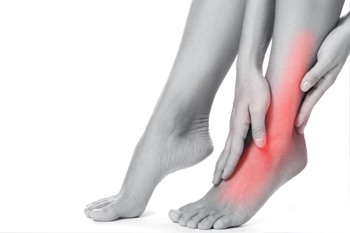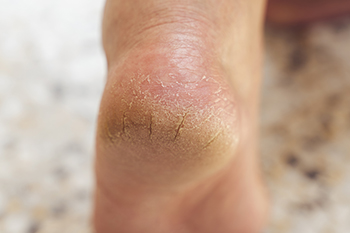Items filtered by date: February 2024
Ankle Injuries in Basketball

Ankle injuries in basketball often occur due to the dynamic movements and high-impact nature of the sport. One common injury is the ankle sprain, which happens when the ligaments supporting the ankle stretch or tear, usually as a result of sudden twists, turns, or awkward landings. These sprains can range from mild to severe, causing pain, swelling, and limited mobility. Another significant concern is ankle fractures, which occur when one or more of the bones surrounding the ankle joint break, often due to forceful impacts or collisions. Both sprains and fractures require timely attention to prevent further damage and promote proper healing. Proper warm-up routines, wearing supportive footwear, and practicing correct landing techniques can help reduce the risk of ankle injuries in basketball players. Additionally, implementing strength and balance exercises to improve ankle stability and flexibility can aid in injury prevention. If you have sustained an ankle injury from playing basketball, it is suggested that you schedule an appointment with a podiatrist for treatment.
Sports related foot and ankle injuries require proper treatment before players can go back to their regular routines. For more information, contact one of our podiatrists of Waterbury Podiatry Consultants. Our doctors can provide the care you need to keep you pain-free and on your feet.
Sports Related Foot and Ankle Injuries
Foot and ankle injuries are a common occurrence when it comes to athletes of any sport. While many athletes dismiss the initial aches and pains, the truth is that ignoring potential foot and ankle injuries can lead to serious problems. As athletes continue to place pressure and strain the area further, a mild injury can turn into something as serious as a rupture and may lead to a permanent disability. There are many factors that contribute to sports related foot and ankle injuries, which include failure to warm up properly, not providing support or wearing bad footwear. Common injuries and conditions athletes face, including:
- Plantar Fasciitis
- Plantar Fasciosis
- Achilles Tendinitis
- Achilles Tendon Rupture
- Ankle Sprains
Sports related injuries are commonly treated using the RICE method. This includes rest, applying ice to the injured area, compression and elevating the ankle. More serious sprains and injuries may require surgery, which could include arthroscopic and reconstructive surgery. Rehabilitation and therapy may also be required in order to get any recovering athlete to become fully functional again. Any unusual aches and pains an athlete sustains must be evaluated by a licensed, reputable medical professional.
If you have any questions please feel free to contact our offices located in Waterbury and Southington, CT . We offer the newest diagnostic and treatment technologies for all your foot and ankle needs.
See Your Podiatrist Regularly If You Work On Your Feet
What Is Hereditary Multiple Exostoses?

Hereditary multiple exostoses, or HME, is a rare genetic condition causing benign cartilage tumors to form near bone growth areas. It is often inherited, more commonly from the father. While it mostly affects males and is usually diagnosed before the age of 10, females can also carry and pass on the condition. These tumors, known as osteochondromas, can develop in various bones, such as in the feet. They can lead to discomfort, especially if the tumors press against nerves or surrounding tissues. Additionally, as the tumors grow, they can cause mechanical pain, specifically if they interfere with joint movement or cause bone deformities. Treatment typically involves surgical removal when symptoms arise or if there is a risk of cancerous changes. If you have foot pain, it is suggested that you schedule an appointment with a podiatrist. Despite its rarity, HME can significantly affect individuals' daily lives, emphasizing the importance of early diagnosis and appropriate management.
Some foot conditions may require additional professional care. If you have any concerns, contact one of our podiatrists of Waterbury Podiatry Consultants. Our doctors can provide the care you need to keep you pain-free and on your feet.
Rare Foot Conditions
The majority of foot conditions are common and can be treated by a podiatrist. Standard diagnostic procedures are generally used to identify specific conditions and treatment can be rendered. A podiatrist also treats rare foot conditions which can be difficult to diagnose and may need extra attention and care.
There are many rare foot conditions that can affect children. Some of these can include:
- Freiberg’s disease
- Kohler’s disease
- Maffucci syndrome
Freiberg’s disease - This can be seen as a deterioration and flattening of a metatarsal bone that exists in the ball of the foot. It typically affects pre-teen and teenage girls, but can affect anyone at any age. Symptoms that can accompany this can be swelling, stiffness, and the patient may limp.
Kohler’s disease - This often targets the bone in the arch of the foot and affects younger boys. It can lead to an interruption of the blood supply which ultimately can lead to bone deterioration. The patient may limp or experience tenderness, swelling, and redness.
Maffucci syndrome - This affects the long bones in a child’s foot leading to the development of abnormal bone lesions. They are benign growths and typically develop in early childhood and the bones may be susceptible to breaking.
A podiatrist can properly diagnose and treat all types of rare foot conditions. If your child is affected by any of these symptoms or conditions, please don’t hesitate to call our office so the correct treatment method can begin.
If you have any questions please feel free to contact our offices located in Waterbury and Southington, CT . We offer the newest diagnostic tools and technology to treat your foot and ankle needs.
Causes and Risk Factors of Cracked Heels

Cracked heels, medically known as heel fissures, occur when the skin around the heel becomes dry, thickened, and eventually splits. This common foot condition can cause discomfort, pain, and even bleeding in severe cases. Several factors contribute to cracked heels, including prolonged standing, walking barefoot, wearing open-back shoes, and dry weather conditions. Individuals with naturally dry skin or certain medical conditions such as diabetes or thyroid disorders are at a higher risk of developing cracked heels. Additionally, factors like obesity, dehydration, and poor foot hygiene can exacerbate the problem. The lack of moisture and exfoliation leads to the build-up of dead skin, creating pressure on the heels and increasing the likelihood of cracking. Prevention is important, and this can be achieved by maintaining proper foot hygiene, moisturizing regularly, wearing appropriate footwear, and avoiding prolonged standing. If you have developed cracked heels, it is suggested that you schedule an appointment with a podiatrist who can prescribe the necessary treatment for relief.
If the skin on your feet starts to crack, you may want to see a podiatrist to find treatment. If you have any concerns, contact one of our podiatrists from Waterbury Podiatry Consultants. Our doctors can provide the care you need to keep you pain-free and on your feet.
Cracked Heels
It is important to moisturize your cracked heels in order to prevent pain, bleeding, and infection. The reason cracked heels form is because the skin on the foot is too dry to support the immense pressure placed on them. When the foot expands, the dry skin on the foot begins to split.
Ways to Help Heal Them
- Invest in a good foot cream
- Try Using Petroleum Jelly
- Ease up on Soaps
- Drink Plenty of Water
Ways to Prevent Cracked Heels
- Moisturize After Showering
- Skip a Shower
- Keep Shower Water Lukewarm
- Don’t Scrub Your Feet
If you are unsure how to proceed in treating cracked heels, seek guidance from a podiatrist. Your doctor will help you with any questions or information you may need.
If you have any questions, please feel free to contact our offices located in Waterbury and Southington, CT . We offer the newest diagnostic and treatment technologies for all your foot care needs.
Bursitis as a Cause of Heel Pain
 Bursa, an important cushion between your muscles and bone, can sometimes cause heel pain if it becomes inflamed or irritated. This condition, called bursitis, often occurs due to repetitive stress on the ankle from running, jumping, and walking. Bursitis in the heel can make activities like walking or standing for long periods painful. Your heel may also be red and tender to the touch. You may be at an increased risk for this condition if you have a history of inflammatory arthritis or suddenly start intense workout routines. The good news is that with proper care and attention, individuals with heel pain from bursitis can find relief and improve their overall foot health. If you are experiencing persistent heel pain, it is suggested that you consult a podiatrist who can diagnose the source of the pain, and provide personalized treatment.
Bursa, an important cushion between your muscles and bone, can sometimes cause heel pain if it becomes inflamed or irritated. This condition, called bursitis, often occurs due to repetitive stress on the ankle from running, jumping, and walking. Bursitis in the heel can make activities like walking or standing for long periods painful. Your heel may also be red and tender to the touch. You may be at an increased risk for this condition if you have a history of inflammatory arthritis or suddenly start intense workout routines. The good news is that with proper care and attention, individuals with heel pain from bursitis can find relief and improve their overall foot health. If you are experiencing persistent heel pain, it is suggested that you consult a podiatrist who can diagnose the source of the pain, and provide personalized treatment.
Many people suffer from bouts of heel pain. For more information, contact one of our podiatrists of Waterbury Podiatry Consultants. Our doctors can provide the care you need to keep you pain-free and on your feet.
Causes of Heel Pain
Heel pain is often associated with plantar fasciitis. The plantar fascia is a band of tissues that extends along the bottom of the foot. A rip or tear in this ligament can cause inflammation of the tissue.
Achilles tendonitis is another cause of heel pain. Inflammation of the Achilles tendon will cause pain from fractures and muscle tearing. Lack of flexibility is also another symptom.
Heel spurs are another cause of pain. When the tissues of the plantar fascia undergo a great deal of stress, it can lead to ligament separation from the heel bone, causing heel spurs.
Why Might Heel Pain Occur?
- Wearing ill-fitting shoes
- Wearing non-supportive shoes
- Weight change
- Excessive running
Treatments
Heel pain should be treated as soon as possible for immediate results. Keeping your feet in a stress-free environment will help. If you suffer from Achilles tendonitis or plantar fasciitis, applying ice will reduce the swelling. Stretching before an exercise like running will help the muscles. Using all these tips will help make heel pain a condition of the past.
If you have any questions please contact our offices located in Waterbury and Southington, CT . We offer the newest diagnostic and treatment technologies for all your foot and ankle needs.

